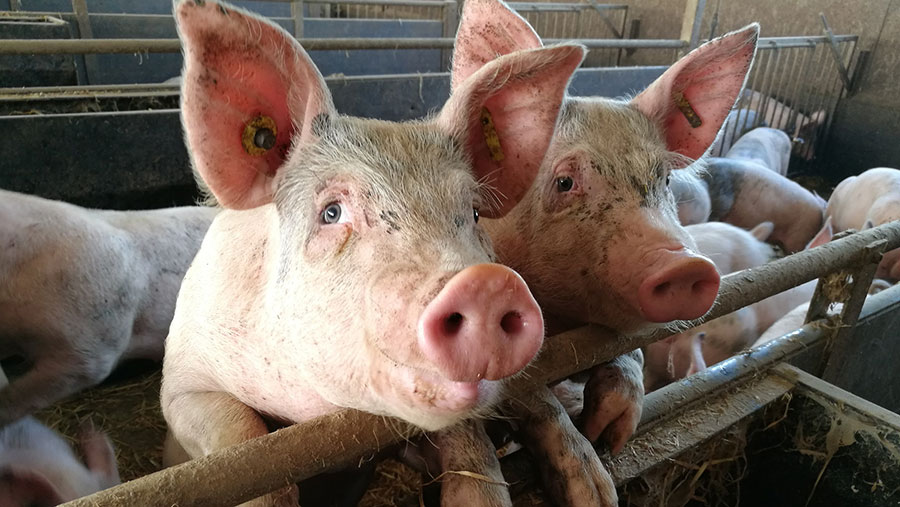Surprise at amount of drug-resistant genes found on pig farm
 © SRUC
© SRUC Drugs are still working on a commercial pig farm, despite scientists finding 50 times more antimicrobial-resistant (AMR) genes than anticipated.
Scotland’s Rural College (SRUC) researchers found 144 different genes on a pig unit in a world-first longitudinal study of drug resistance in pig gut bacteria.
The study – which has appeared in the journal Scientific Reports – took place on a farm with high historic and current antimicrobial use.
See also: Pig industry achieves further antibiotic reductions
Scientists said the relatively stable nature of AMR gene counts over time suggested the genes had become integrated into the faecal microbial community.
The trial took place over one production cycle in partnership with the Roslin Institute, University of Edinburgh.
Professor Michael Hutchings, head of animal and veterinary sciences at SRUC, said: “At the start of the study, we hoped to find two or three genes to follow their numbers through the pig production cycle. The richness of AMR genes and their numbers were unexpected.”
